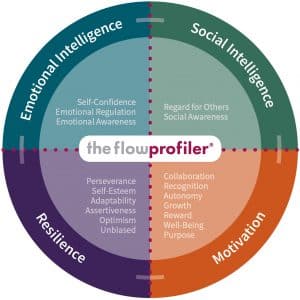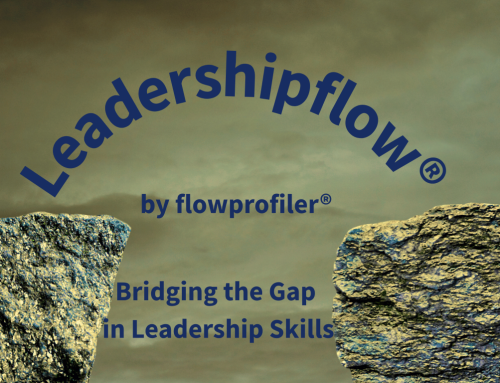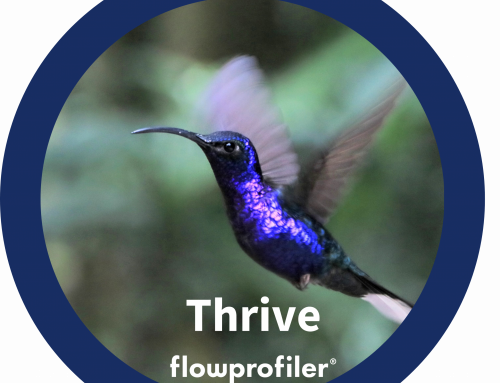Change is the only constant. Professionals encounter a range of hurdles on a daily basis, ranging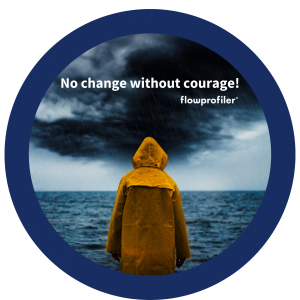 from time constraints and high-pressure situations to interpersonal conflicts and the relentless pace of technological advancements. This necessitates a continuous process of adaptation and the cultivation of courage. In this article we explore the significance of courage and the adoption of adaptive behavioural strategies to effectively confront and overcome the daily trials faced by professionals.
from time constraints and high-pressure situations to interpersonal conflicts and the relentless pace of technological advancements. This necessitates a continuous process of adaptation and the cultivation of courage. In this article we explore the significance of courage and the adoption of adaptive behavioural strategies to effectively confront and overcome the daily trials faced by professionals.
Understanding Professional Challenges:
The professional journey is full of challenges that demand flexibility and resilience. Tight deadlines, unexpected obstacles, and the pressure to deliver results create an environment where adaptability becomes a crucial skill. Interpersonal dynamics, organisational changes, and evolving technologies further contribute to the tapestry of challenges.
The capacity to navigate these challenges is contingent upon the willingness to embrace change and proactively adjust strategies and approaches.
Change, often accompanied by a sense of the unknown, induces fear!
Professionals may find themselves hesitant to leave behind the familiar and venture into uncharted territories. Yet, it is within these unfamiliar realms that growth and innovation flourish.
The ability to confront these challenges head-on, with the courage to move beyond one’s comfort zone, becomes the cornerstone of professional success.
The Role of Courage:
Courage is not the absence of fear but the recognition of fear and the commitment to proceed despite it. It serves as the driving force that empowers individuals to face challenges with resilience, determination, and a willingness to take calculated risks. Without this essential quality, professionals run the risk of stagnation, finding themselves unable to adapt to the dynamic and ever-changing landscape of their industries.
Consider a professional faced with the prospect of spearheading a transformative change initiative within their organisation. Despite the uncertainty surrounding such a significant shift, this individual embodies courage by taking on a project that challenges the status quo. In this scenario, courage becomes the driving force propelling them to innovate and drive transformative change within their organisation. Embracing such a substantial change demands not only the fortitude to confront uncertainty but also the ability to make bold decisions and navigate through uncharted waters, setting a powerful example for others within the organisation.
What about an individual grappling with a fear of public speaking? Despite the palpable anxiety associated with addressing a large audience, this person summons the courage to step into the spotlight and share their insights. In this specific scenario, courage is evident in their willingness to confront the fear of public speaking head-on.
Embracing this challenge requires not only the fortitude to face the anxiety but also the determination to deliver a message or presentation with confidence. The courage to overcome the fear of public speaking showcases a commitment to personal and professional growth.
True courage isn’t the absence of fear but the ability to face it and speak despite it.
Courage is not a static trait but a dynamic quality that can be nurtured and developed. It involves acknowledging fear and discomfort but choosing to move forward despite these challenges. Creating a culture that encourages and rewards courageous behavior is vital for fostering an environment where professionals feel empowered to take risks and embrace change.
Key Adaptive Behavioural Strategies:
-
Continuous Learning:
The rapid pace of change in most industries necessitates a commitment to continuous learning.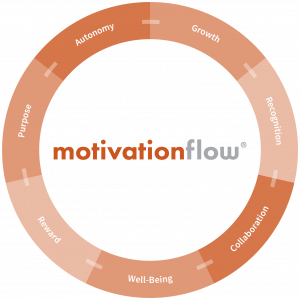 Professionals must actively seek opportunities to acquire new skills and knowledge relevant to their roles. This may involve attending workshops, enrolling in online courses, or participating in industry conferences. The proactive pursuit of knowledge ensures that professionals remain abreast of industry trends and advancements.
Professionals must actively seek opportunities to acquire new skills and knowledge relevant to their roles. This may involve attending workshops, enrolling in online courses, or participating in industry conferences. The proactive pursuit of knowledge ensures that professionals remain abreast of industry trends and advancements.
Example: A marketing professional, recognising the growing importance of digital marketing, decides to enrol in a comprehensive online course to enhance their understanding of emerging trends and tools in the digital landscape.
Our flowprofiler® assessment motivationflow® measures this behavioural attribute in professionals.
-
Resilience:
Resilience is the ability to bounce back from setbacks, adapt to change, and maintain a positive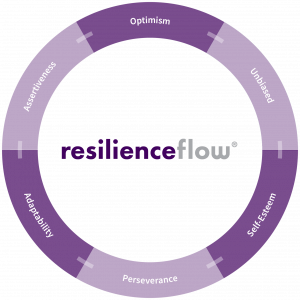 mindset in the face of adversity. Developing resilience involves cultivating a mindset that views challenges as opportunities for learning and growth. It requires the capacity to navigate setbacks without losing sight of long-term goals.
mindset in the face of adversity. Developing resilience involves cultivating a mindset that views challenges as opportunities for learning and growth. It requires the capacity to navigate setbacks without losing sight of long-term goals.
Example: A project manager, facing unexpected delays in a critical project, demonstrates resilience by reevaluating timelines, rallying the team, and finding alternative solutions to keep the project on track.
flowprofiler®’s resilienceflow® assessment is a terrific diagnostic instrument for professionals seeking to understand their personal resilience in the workplace and what they can do to effect a change.
-
Effective Communication:
In an era where collaboration is integral to success, effective communication is paramount. Professionals need to hone their communication skills to convey ideas clearly, resolve conflicts, and build strong professional relationships. Clear and concise communication fosters a collaborative environment where ideas can be exchanged seamlessly.
Professionals need to hone their communication skills to convey ideas clearly, resolve conflicts, and build strong professional relationships. Clear and concise communication fosters a collaborative environment where ideas can be exchanged seamlessly.
Example: A team leader conducts regular communication workshops for their team, focusing on enhancing both verbal and written communication skills. This initiative results in improved team cohesion and a more efficient workflow.
Considers engaging in flowprofiler®’s ThinkSpeak or Polished Presenter workshops.
-
Agility:
The ability to be agile in the face of change is a valuable skill in the professional toolkit. Professionals should be willing to pivot their strategies and approaches based on the evolving needs of their work environment. This involves a mindset of flexibility and adaptability to navigate unforeseen challenges.
should be willing to pivot their strategies and approaches based on the evolving needs of their work environment. This involves a mindset of flexibility and adaptability to navigate unforeseen challenges.
Example: An IT professional, working on a software development project, adjusts their approach when new requirements emerge mid-project. This flexibility ensures that the project aligns with the evolving needs of the end-users.
Consider flowprofiler®’s Adaptability power skills module or perhaps our Creative Teams workshop.
-
Innovative Thinking:
Embracing change often requires thinking outside the box and exploring creative solutions to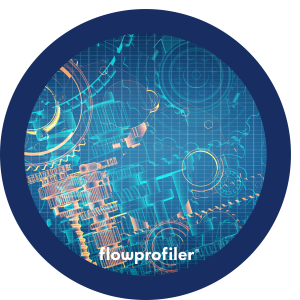 problems. Innovative thinking involves encouraging creativity, curiosity, and a willingness to explore novel approaches. Professionals who cultivate this mindset contribute to a culture of innovation within their organisations.
problems. Innovative thinking involves encouraging creativity, curiosity, and a willingness to explore novel approaches. Professionals who cultivate this mindset contribute to a culture of innovation within their organisations.
Consider product development team conducts regular brainstorming sessions to generate innovative ideas for product enhancements. This approach leads to the creation of unique features that set their product apart in the market.
Courage stands as the catalyst for change. It empowers individuals to face uncertainties, tackle challenges, and embrace the inevitable shifts in their industries. By adopting adaptive behavioural strategies, professionals not only navigate daily complexities but also position themselves as leaders in their respective fields.
flowprofiler® was designed to help professionals develop adaptive behavioural strategies. Reach our to us today at hello@flowprofiler.com
